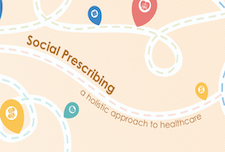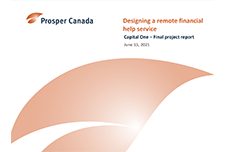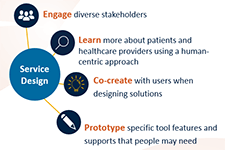Discover financial empowerment resources
Discover financial empowerment resources
Social prescribing is a means of connecting people to a range of community services and activities to improve their health and well-being. These services vary based on each person’s needs and interests, and can include food subsidies, transportation, fitness classes, arts and culture engagement,...

Amidst the COVID-19 lockdown, community service agencies across Canada have had to rapidly adapt the way they engage and support people in the community. A growing number of Canadians need (or soon will need) support as they deal with the financial strain brought on by an unprecedented global...

This one-hour webinar shares insights on why service design is so valuable for organizations and businesses, and what is involved in the service design process. The purpose of this webinar is to introduce you to what service design is, how it works, and what elements of service design you can take...

This publication reveals the outcomes of Bridgable's work with a federal credit union, cutting through their overwhelming number of offerings to better engage with their low-income members. It also discusses why agility is a better bet than digitization when it comes to our changing financial...
Prosper Canada, Peel Children and Youth Initiative, and Bridgeable are working together to design solutions that help low-income families access and take advantage of RESP support programs, specifically the Canada Learning Bond. This report presents a summary of the project in each of its phases:...
Service design consultancy Bridgeable provides an overview of the project partnership with Prosper Canada in April 2020 to take a design sprint approach in providing remote tax-filing and benefits application service solution. Over the course of four consecutive days, Bridgeable worked with...

